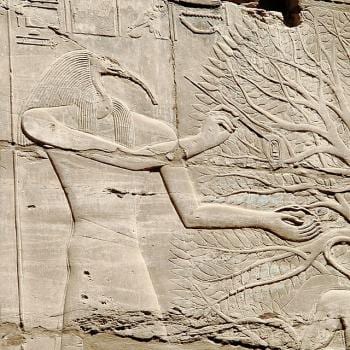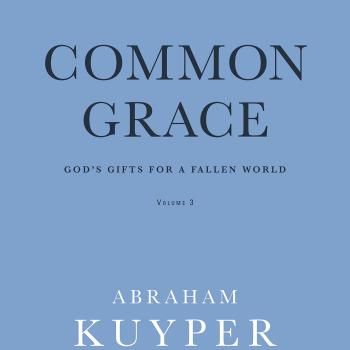Behind "human rights," then, is the Enlightenment notion of "natural rights." But behind natural rights are centuries of theological reflection on "natural law," the idea that there is a great moral scheme of things that God has designed, a scheme that reflects the mind of God, and according to which every creature has an end it must realize if it is to be happy. Every human government should attempt to approximate this scheme and thus enable its citizens to fulfill the ends for which God created them. Thomas Aquinas, the great synthesizer of this doctrine of natural law in the Middle Ages, folded the Stoic concept of divine reason that orders the cosmos into the Genesis account of creation and grounded the dignity of human beings in his understanding of sacred history -- that we were created in the image of God, have fallen, are redeemed by Jesus Christ, and ultimately summoned to return to God. Our origin and destiny in God means that no civil power can claim the right to subordinate us to its ends. This theological justification for a "higher law" in the mind of God to which all governments are answerable is the deep background of the modern concept of human rights.
Similar genealogies could be traced for other modern dogmas. That we value democracy has its historical roots in the Puritan struggles for popular sovereignty, the Calvinist belief that those who have power will inevitably abuse it, and an even deeper root in the biblical admonitions that promoted a feeling of obligation for the poor and humble. The Bible has much to say about championing the side of victims, being suspicious of wealth, refusing to be "respecters of persons," and condemning the delusions of the powerful, all prejudices inclined toward social leveling that persist as moral reflexes in the West, as can be seen in the insistence upon due process in western legal practice, and the different permutations of the anti-globalization movement of last decade.
In addition to its role in the emergence of human rights, the concept of a higher law that arose in the natural law tradition has had repercussions in science and art, where it has served to embolden many thinkers and artists to question conventions and common wisdom. The practice of critical interpretation of culture that permeates the West -- in journalism, literature, cinema, and higher education -- rests at some level on a faith in a higher law in relation to which everything falls short, and to which everything is accountable.
Kelton Cobb is Professor of Theology and Ethics at Hartford Seminary in Hartford, CT.
photo courtesy of chascar via Creative Commons license at Flickr




